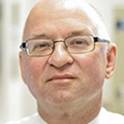| Present | CIHR-GSK Chair in Paediatric Clinical Pharmacology, Western University | |
|
|
||
| Present | Professor, Western University ‐ Department of Physiology and Pharmacology | |
|
|
||
| Present | Professor, Western University ‐ Department of Medicine | |
|
|
||
| Present | Scientist, Lawson Health Research Institute ‐ Children's Health Research Institute (CHRI) | |
|
|
||
Disciplines
Research Interests
| 1985 - 1992 | Ph.D, University of Toronto | |
|
|
||
| 1980 - 1983 | FAAP, Pediatric Resident, Wayne State University | |
|
|
||
| 1975 - 1980 | MD, University of Saskatchewan | |
|
|
||
